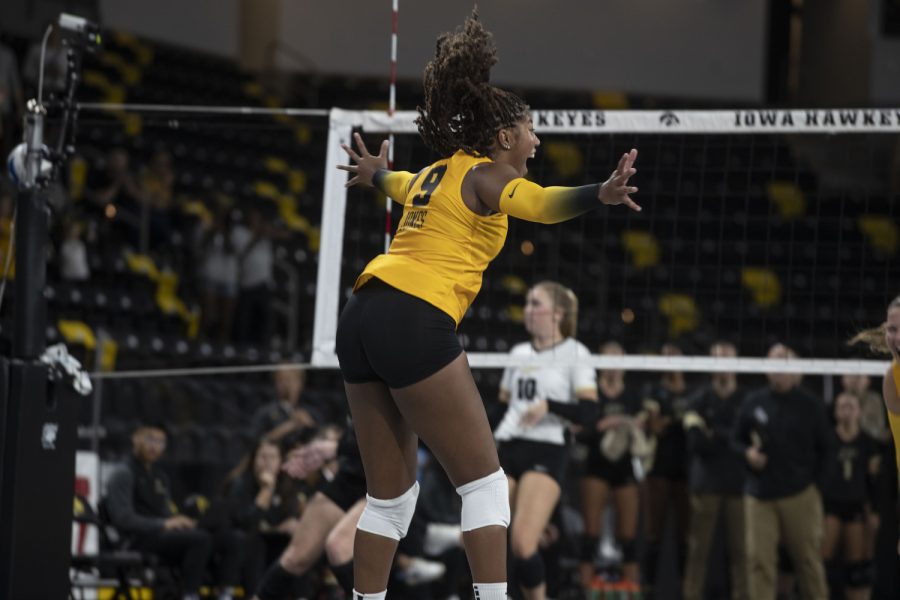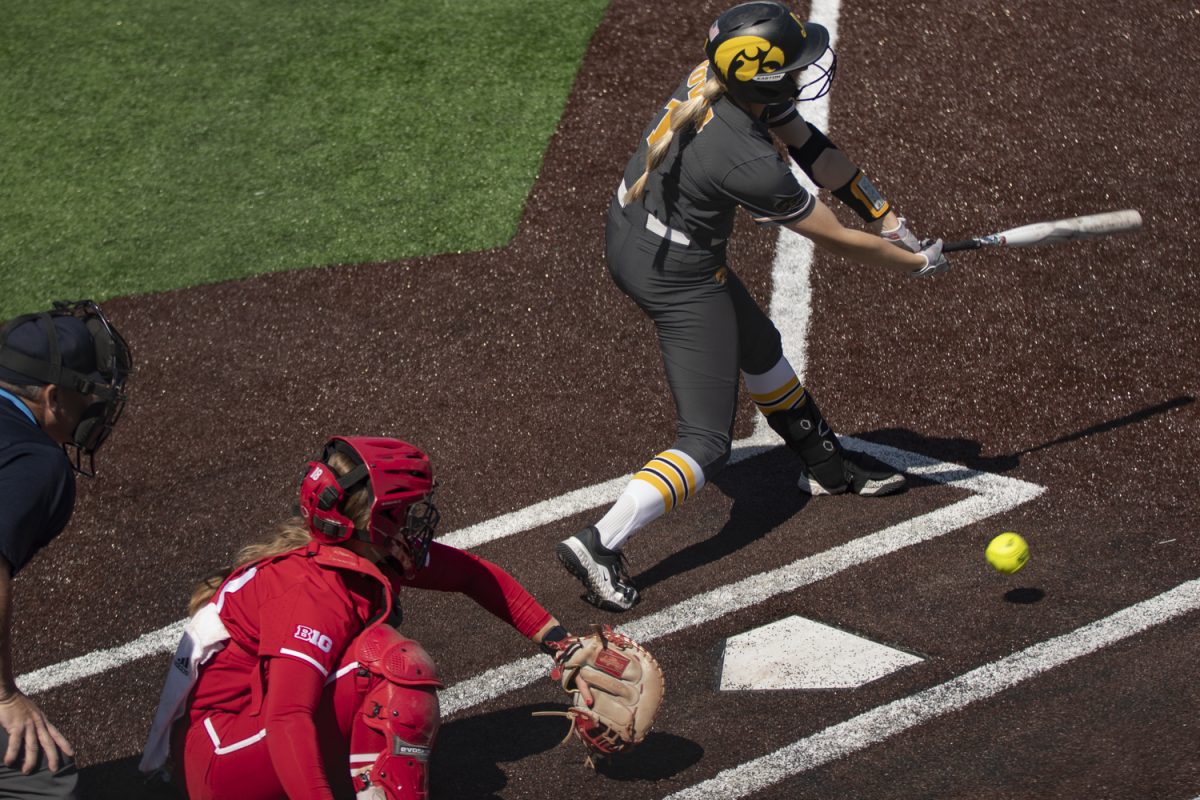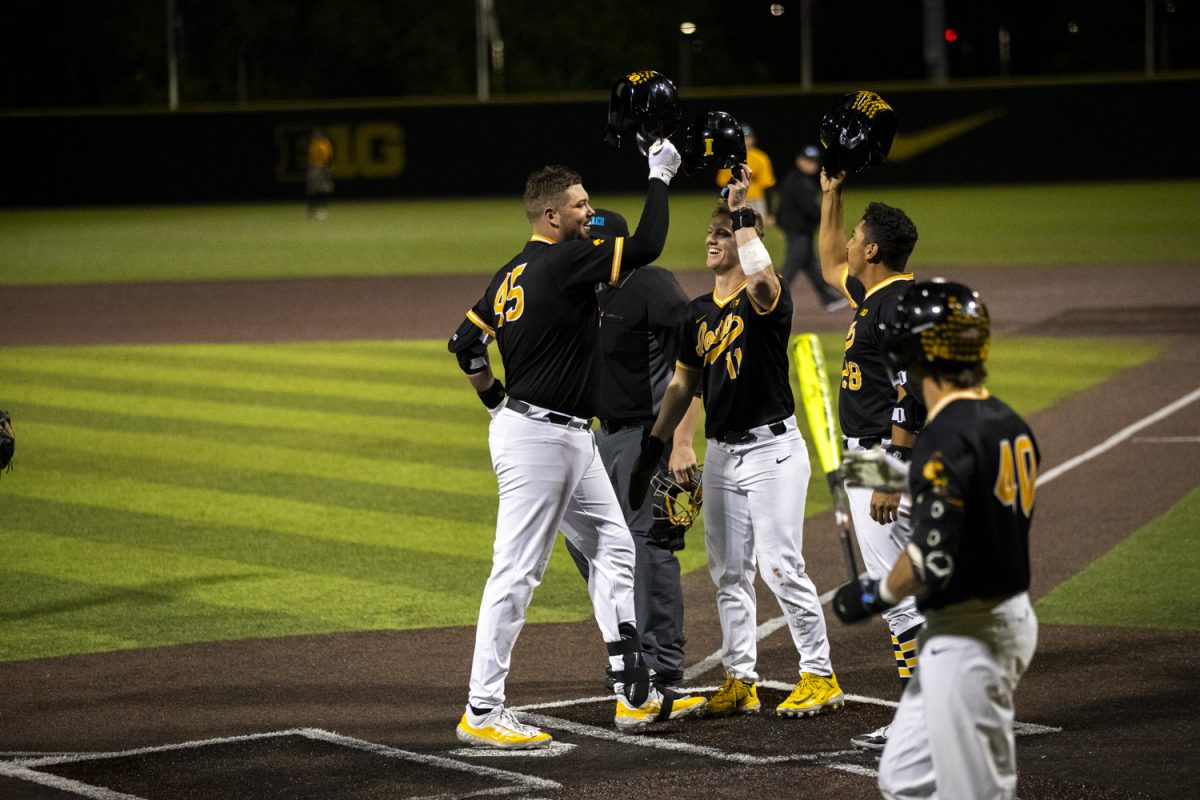Extra downtime may be something athletes crave during competition — however, the extra resting time isn’t so much a blessing as it is a curse for track and field athletes.
In a sport with such a variety of events and specialized athletes, tracksters often spend the majority of the meet waiting for competition rather than actually competing. While some free time is essential for athletes to recharge, too much time to mentally prepare for the next event can lead to unnecessary anxiety.
“I tell myself to laugh a lot so I don’t get too psyched out,” freshman Brittany Brown said. “I just try to be funny.”
Track athletes with prolonged time between competitions, such as Brown, have their own set of strategies.
Brown ran three events at the Drake Relays on April 26, with no more than two hours between each race. Other relay racers experienced the same schedule, and at the end of the day, they were “all pretty sore and tired.”
However, assistant coach Clive Roberts said the team doesn’t even think twice about the extra time between races.
“It’s not really a factor for us,” he said. “Sometimes, we’ll direct the kids to sit down, put their legs up, and get ready for the next race.”
Athletes’ fatigue is not an uncommon concern, but it is especially relevant during the outdoor track season, when the away meets and travel time are plenty. Often, the journey begins early Thursday morning and ends either late or extremely early on Sunday — sometimes returning home at 4 a.m.
“We’ve had a couple of weekends where we’ve gotten home late or in the wee hours of the morning, and we have to guard against that,” head coach Layne Anderson said. “We rest athletes by leaving them home during certain meets for that reason.”
During away meets, most of the athletes’ time is spent either on the road or waiting around during the meet — the least amount of time is spent in actual competition.
Sophomore Grace Haerr noted that the jam-packed schedule often leads to stress about schoolwork — especially when she misses Thursday’s classes to travel for weekend meets.
“We have a lot of downtime at track meets, but it’s not like we’re using it to do homework,” she said. “We dedicate entire weekends; it’s not just one game.”
While the sport is heavily focused on individuals and the teammates aren’t necessarily competing at the same time, every minute of a track and field meet is still important, centered on supporting other teammates.
“It’s a team sport, even though some people won’t say that because there are a lot of individual events — one individual may be sitting while another is competing,” Roberts said. “But when we go to track meets, we’re focusing on making sure Iowa is doing everything we need to do to be successful.”






